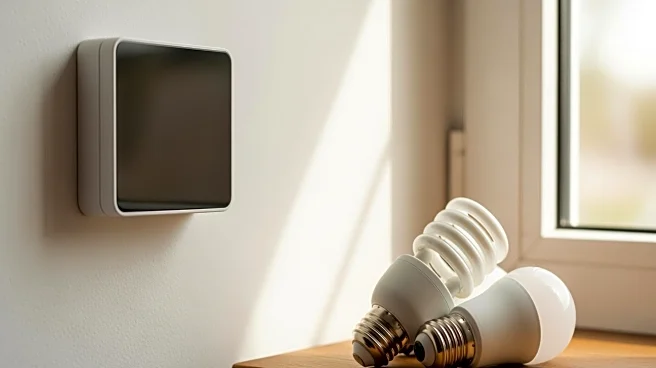What's Happening?
Derby City Council has launched a free home energy upgrade scheme aimed at improving energy efficiency in low-income, privately owned homes. Funded by a £1.6 million Warm Homes Grant, the initiative offers homeowners up to £30,000 per property to retrofit
renewable energy systems, such as solar panels and efficient heating systems. The scheme targets homes with an Energy Performance Certificate (EPC) rating of D, E, F, or G, and household incomes of £36,000 or less, although exceptions apply for certain postcodes and benefits. The council has partnered with YES Energy Solutions to deliver these upgrades, aiming to reduce energy bills and improve housing standards.
Why It's Important?
The energy upgrade scheme is significant for addressing energy efficiency and reducing costs for low-income households. By retrofitting homes with renewable energy systems, the initiative supports environmental sustainability and helps alleviate financial stress associated with high energy bills. Improved energy efficiency can lead to healthier living conditions and contribute to broader efforts to reduce carbon emissions. The scheme also highlights the role of local governments in driving sustainable development and supporting vulnerable communities.
What's Next?
Eligible residents are encouraged to apply for the grant, with the potential for expanded participation as awareness of the scheme grows. The success of this initiative could lead to similar programs in other regions, promoting energy efficiency and sustainability on a larger scale. As more homes are upgraded, there may be increased demand for renewable energy technologies and services, driving innovation and investment in the sector.
Beyond the Headlines
The scheme reflects broader trends in energy policy and the transition towards sustainable living. As governments and communities prioritize energy efficiency, initiatives like this one play a crucial role in achieving environmental goals and supporting economic resilience. The focus on low-income households underscores the importance of equitable access to sustainable solutions, ensuring that all residents can benefit from improved living conditions and reduced energy costs.















